
Documenting a reunion of Musica Elettronica Viva's founders Frederic Rzewski (piano and vocals), Richard Teitelbaum (keyboards and computer) and Alvin Curran (keyboards, computer and shofar) at the 32nd International Festival Of Current Music in Victoriaville, Canada in 2016.
In Stock
Quantity in Basket: None
Log In to use our Wish List
Shipping Weight: 3.00 units
EU & UK Customers:
Discogs.com can handle your VAT payments
So please order through Discogs
Sample The Album:
Frederic Rzewski-piano, voice
Richard Teitelbaum-clavier, computer
Alvin Curran-clavier, computer, shofar
Click an artist name above to see in-stock items for that artist.
UPC: 777405012920
Label: Les Disques Victo
Catalog ID: VICCD129
Squidco Product Code: 23209
Format: CD
Condition: New
Released: 2016
Country: Canada
Packaging: Cardboard Gatefold 3 Panels
Recorded at the 32nd International Festival Of Current Music in Victoriaville, Canada, on May 22nd, 2016.
"The trio's hour-long improvisation was a beautiful unfolding of musical ideas that culminated in a fable told/spoken by Rzewski that summed up the beauty and terror of the last one hundred years of war and displacement, proving that creativity does not necessarily diminish with age. In a way, this was the most beautiful, sad, and angry set of the festival."-Mike Chamberlain, allaboutjazz.com

The Squid's Ear!
Artist Biographies
• Show Bio for Frederic Rzewski "Frederic Anthony Rzewski (born April 13, 1938 in Westfield, Massachusetts) is an American composer and virtuoso pianist. Rzewski (pronounced zheff-skee) began playing piano at age 5. He attended Phillips Academy, Harvard and Princeton, where his teachers included Randall Thompson, Roger Sessions, Walter Piston and Milton Babbitt. In 1960, he went to Italy, a trip which was formative in his future musical development. In addition to studying with Luigi Dallapiccola, he began a career as a performer of new piano music, often with an improvisatory element. A few years later he was a co-founder of Musica Elettronica Viva with Alvin Curran and Richard Teitelbaum. Musica Elettronica Viva conceived music as a collective, collaborative process, with improvisation and live electronic instruments prominently featured. In 1971 he returned to New York. In 1977 Rzewski became Professor of Composition at the Conservatoire Royal de Musique in Liège, Belgium, then directed by Henri Pousseur. Occasionally he teaches for short periods at schools and universities throughout the U.S. and Europe, including Yale University, the University of Cincinnati, the California Institute of the Arts, the University of California, San Diego, the Royal Conservatory of The Hague and Trinity College of Music, London. Many of Rzewski's works are inspired by secular and socio-historical themes, show a deep political conscience and feature improvisational elements. Some of his better-known works include The People United Will Never Be Defeated! (36 variations on the Sergio Ortega song El pueblo unido jamás será vencido), a set of virtuosic piano variations written as a companion piece to Beethoven's Diabelli Variations; Coming Together, which is a setting of letters from Sam Melville, an inmate at Attica State Prison, at the time of the famous riots there (1971); North American Ballads; Night Crossing with Fisherman; Fougues; Fantasia and Sonata; The Price of Oil, and Le Silence des Espaces Infinis, both of which use graphical notation; Les Moutons de Panurge; and the Antigone-Legend, which features a principled opposition to the policies of the State, and which was premiered on the night that the United States bombed Libya in April 1986. Among his most recent compositions, the most interesting are the Nanosonatas (2006~2010) and the Cadenza con o senza Beethoven (2003), written for Beethoven's Fourth Piano Concerto. Rzewski played the solo part in the world premiere of his piano concerto at the 2013 BBC Proms. Nicolas Slonimsky (1993) says of him in Baker's Biographical Dictionary of Musicians: "He is furthermore a granitically overpowering piano technician, capable of depositing huge boulders of sonoristic material across the keyboard without actually wrecking the instrument." " ^ Hide Bio for Frederic Rzewski • Show Bio for Richard Teitelbaum "Composer/performer Richard Teitelbaum is well known for his pioneering work in live electronic music, and his early explorations of intercultural improvisation and composition. He received his masters degree in theory and composition from Yale in 1964. After continuing his composition studies with Luigi Nono on a Fulbright in Italy, he co-founded the pioneering live electronic music group Musica Elettronica Viva (MEV) with Frederic Rzewski and Alvin Curran in Rome in 1966, bringing the first Moog synthesizer to Europe the following year. He returned to the United States in 1970 to create the World Band, one of the first intercultural improvisation groups which was made up of master musicians from India, Japan, Korea, the Middle East and North America. His works since then have frequently combined live electronics with the music of other cultures. In 1977 he spent a year in Tokyo, studying shakuhachi (bamboo flute) with the great master Katsuya Yokoyama. His recent CD, Blends (New Albion), for shakuhachi, electronics and percussion, featuring Yokoyama was named one of the ten best contemporary classical CDs of 2002 by The Wire Magazine of London. He has performed his works at Berlin's Philharmonic Hall, the Concertgebouw in Amsterdam, Almeida Theater and South Bank in London, the Pompidou Center in Paris, the Kennedy Center in Washington, and in concerts and festivals throughout Europe, North America, East Asia and Latin America. He has been commissioned by leading performers, including pianists Aki Takahashi and Ursula Oppens. In 2002 he received a Guggenheim fellowship to create Z'vi, the second opera in a projected trilogy dealing with Jewish mystical expressions of redemptive hopes. Extended sections of Z'vi were premiered at the opening of the Frank Gehry designed Performing Arts Center at Bard College and at the 2003 Venice Biennale. It will be presented again at the Center for Jewish History in New York in April 2005. The first opera of this series, Golem: An Interactive Opera, was premiered at the Jewish Museum in New York in 1989, and subsequently performed in Amsterdam, Berlin, Linz, Victoriaville, Quebec and Seoul, South Korea. Teitelbaum has received numerous awards, included a Guggenheim in 2002 to create his opera Z'vi, as well as two Fulbrights, and grants from the National Endowment for the Arts, New York State Council on the Arts, New York Foundation for the Arts, The Rockefeller Foundation, the Asian Cultural Council, and commissions from several German radio stations, the Venice Biennale, Meet the Composer/Readers Digest, and the Mary Flagler Cary Trust. In 2004 he received a commission from the Fromm Music Foundation to compose an interactive instrumental and computer work for the Da Capo Chamber Players to be premiered in fall, 2005. In addition to Blends (New Albion), his many recordings include: Golem: an Interactive Opera, on Tzadik; The Sea Between with Carlos Zingaro, on Victo; Live at Merkin Hall with Anthony Braxton on Music and Arts; Concerto Grosso, for Human Concertino and Robotic Ripieno, on Hat Art; and Spacecraft with Musica Elettronica Viva, on Alga Marghen. Teitelbaum maintains an active schedule. In March, 2005 he will be in residence at the College of Santa Fe in New Mexico, and featured composer at their International Festival of Electroacoustic Music. Following performances of his opera-in progress Z'vi and with Musica Eletttronica Viva in April, he will travel to Japan on a Freeman Foundation Research Grant in May. Teitelbaum is also a Professor of Music at Bard College, in upstate New York, where he teaches electronic and experimental music, and co-chairs the music department of the Master of Fine Arts program." ^ Hide Bio for Richard Teitelbaum • Show Bio for Alvin Curran "Born December 13, 1938, Providence, Rhode Island. From five years: piano lessons, trombone, marching bands, Synagogue chants, Jazz, and his father's dance bands. Becomes an artist at age 13 in an apple tree at the house of his lifelong friend, poet Clark Coolidge. Hears Spike Jones, the Rhode Island Philharmonic, Satchmo, The Boston Symphony Orcherstra, Art Tatum, Charlie Parker, The Band of America, Thelonius Monk, Gerry Mulligan, Miles Davis, Coltrane, Bartok and Christian Wolff. With a fortuitous bang, he begins his musical journey (1965 in Rome) as co-founder of the radical music collective Musica Elettronica Viva, as a solo performer, and as a composer for Rome's avantgarde theater scene. In the 70's, he creates a poetic series of solo works for synthesizer, voice, taped sounds and found objects. Seeking to develop new musical spaces, and now considered one of the leading figures in making music outside of the concert halls -- he develops a series of concerts for lakes, ports, parks, buildings, quarries and caves -- his natural laboratories. In the 1980's, he extends the ideas of musical geography by creating simultaneous radio concerts for three, then six large ensembles performing together from many European Capitals. By connecting digital samplers to MIDI Grands (Diskklavier) and computers, since 1987, he produces an enriched body of solo performance works -- an ideal synthesis between the concert hall and all sounding phenomena in the world. He creates a visually striking series of sound installations, some of them in collaboration with visual artists including Paul Klerr, Melissa Gould, Kristin Jones, Pietro Fortuna, Umberto Bignardi, Uli Sigg. Throughout these years he continues to write numerous pieces for radio and for acoustic instruments. Studies composition with Ron Nelson (B.A. Brown University 1960) and with Elliott Carter and Mel Powell ( M.Mus., Yale School of Music 1963). During summer vacations, plays European crossings with the "Brunotes" on the Holland American Line, in a Greek Dance Band in the Catskills, and in the Dunes Hotel in Las Vegas. Continues studies and friendship with Carter in Berlin (1964 Ford Foundation Grant), meets Stravinsky, Xenakis, Berio, Yuji Takahashi, Andriessen, Remo Remotti, and above all Rzewski. Goes to Darmstadt, hangs with Babbitt and Earl Brown, hears Stockhausen and Ligeti. Goes to Rome with Joel Chadabe and plays piano in bars on via Veneto, meets Franco Evangelisti and Cornelius Cardew. In the Musica Elettronica Viva years (1966 -1971 in Rome), performs in over 200 concerts in Europe and the USA with Teitelbaum and Rzewski, Carol Plantamura, Ivan Vandor, Alan Bryant and Jon Phetteplace; and makes significant artistic encounters with Giuseppe Chiari, Edith Schloss, AMM, Cardew, Steve Lacy, Michelangelo Pistoletto, Steve ben Israel, Anthony Braxton, Simone Forti, Steve Reich, Joan La Barbara, Michael Nyman, La Monte Young, Trisha Brown, Ashley, Behrman, Gordon Mumma, Alvin Lucier, Larry Austin, Bill Smith, Ketoff, Robert Moog, Nuova Consonanza, MEV2, Meme Perlini, Mario Ricci, Maria Monti, Prima Materia, Ron Bunzl, Phil Glass, Charlemagne Palestine, Terry Riley, George Lewis, Evan Parker, Gregory Reeves, Serge Tcherepnin, Kosugi, Pulsa, Maryanne Amacher, John Cage, David Tudor, Morton Feldman. Scelsi becomes his friend and mentor. From 1975-80 taught vocal improvisation at the Accademia Nazionale d'Arte Drammatica (Rome) and from 1991 to 2006 was the Milhaud Professor of Composition at Mills College in Oakland, California. Currently teaching privately in Rome in addition to master classes, residencies, and lectures at Oberlin, Peabody, Brown, Berkeley, The Hague, Haifa, Bolzano, Northwestern, Yale, Beijing, etc." ^ Hide Bio for Alvin Curran
11/29/2024
Have a better biography or biography source? Please Contact Us so that we can update this biography.
11/29/2024
Have a better biography or biography source? Please Contact Us so that we can update this biography.
11/29/2024
Have a better biography or biography source? Please Contact Us so that we can update this biography.
Track Listing:
1. Symphony No 106 (62:05)
Improvised Music
Electro-Acoustic
Electro-Acoustic Improv
European Improvisation and Experimental Forms
Trio Recordings
Victo
Search for other titles on the label:
Les Disques Victo.

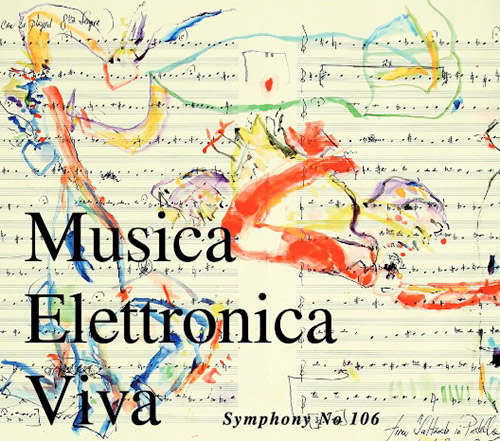
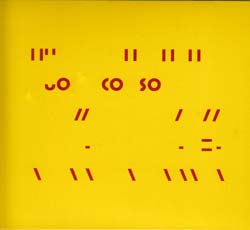
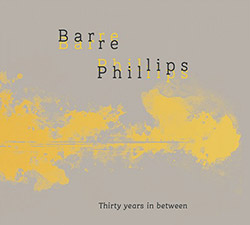



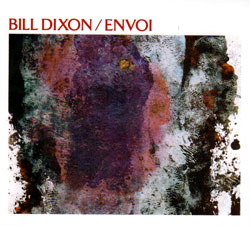
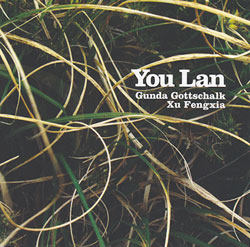



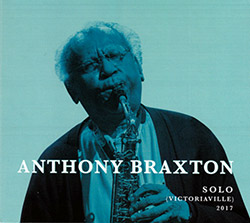
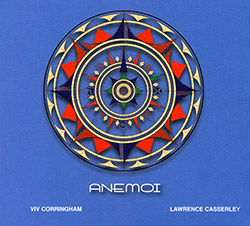


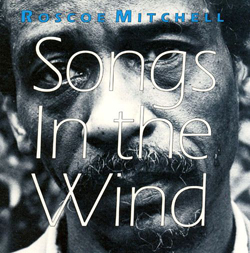





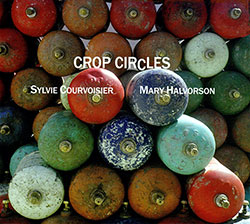
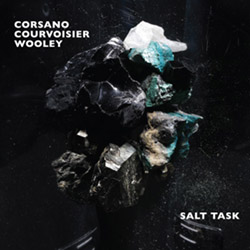








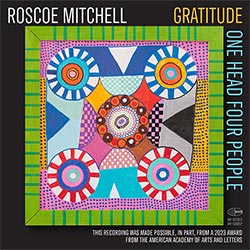
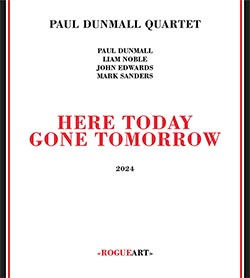
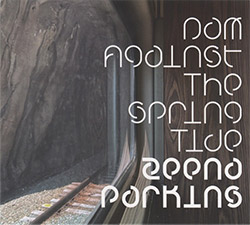
![Weston, Matt: Communism Has Appeared On The Scene [VINYL 2 LPs]](https://www.teuthida.com/productImages/misc4/35546.jpg)
![Coleman, Steve & Five Elements: PolyTropos / Of Many Turns [2 CDs]](https://www.teuthida.com/productImages/misc4/35476.jpg)
![Sorey, Tyshawn (w/ Diehl / Ragahavan): The Susceptible Now [DOUBLE VINYL]](https://www.teuthida.com/productImages/misc4/35477.jpg)


![John Coltrane Quartet (Coltrane / Tyner / Garrison / Jones): Impressions From Graz 1962, Revisited [2 CDs]](https://www.teuthida.com/productImages/misc4/35495.jpg)

![Guy, Barry / Ken Vandermark: Occasional Poems [2 CDs]](https://www.teuthida.com/productImages/misc4/34849.jpg)
![Novoa / Carter / Mela Trio: Vol.1 [VINYL]](https://www.teuthida.com/productImages/misc4/35236.jpg)


![Elephant9 : Mythical River [VINYL]](https://www.teuthida.com/productImages/misc4/34624.jpg)
![Evans, Peter (Evans / Eldh / Black): Extra [VINYL]](https://www.teuthida.com/productImages/misc4/35279.jpg)

![McPhee, Joe: Straight Up, Without Wings [BOOK]](https://www.teuthida.com/productImages/misc4/35454.jpg)
![Jeck, Philip: rpm [2 CDs]](https://www.teuthida.com/productImages/misc4/35455.jpg)









![Barker / Parker / Irabagon: Bakunawa [VINYL]](https://www.teuthida.com/productImages/misc4/35533.jpg)




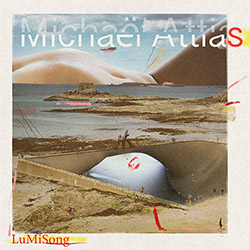
![Blaser, Samuel / Marc Ducret / Peter Bruun: Dark Was The Night, Cold Was The Ground [VINYL 10-inch]](https://www.teuthida.com/productImages/misc4/35492.jpg)






![Warren, Kenny (Warren / Hoffman / Ellman): Sweet World [VINYL]](https://www.teuthida.com/productImages/misc4/35451.jpg)




![Blake, Ran / Dave Knife Fabris: Live Amsterdam 2006, First Visit [CD + POSTCARDS]](https://www.teuthida.com/productImages/misc4/35275.jpg)




![DNS: Taking Big Bites Of The Khandas Three Cafes Deep [2 CDs]](https://www.teuthida.com/productImages/misc4/35334.jpg)




![Cleaver, Gerald: The Process [VINYL]](https://www.teuthida.com/productImages/misc4/34966.jpg)




![Alva Noto: HYbr:ID II [VINYL 2 LPs]](https://www.teuthida.com/productImages/misc4/35201.jpg)

![Baron, Derek / Luke Martin: Distinct and Concealed [CASSETTE + DOWNLOAD]](https://www.teuthida.com/productImages/misc4/35079.jpg)

![Lyle, Erica Dawn : Colonial Motels [CASSETTE + DOWNLOAD]](https://www.teuthida.com/productImages/misc4/35080.jpg)









![Sanna, Claudio: Compositori Sardi Contemporanei II [2 CDs]](https://www.teuthida.com/productImages/misc4/35317.jpg)







![Zurria, Manuel: Fame di Vento [3 CDs]](https://www.teuthida.com/productImages/misc4/35167.jpg)

![Granberg, Magnus / Nattens Inbrott / Skogen: Holde Traume, Kehret Wieder! [2 CDs]](https://www.teuthida.com/productImages/misc4/35038.jpg)
![Frey, Jurg: Outermost Melodie [2 CDs]](https://www.teuthida.com/productImages/misc4/35039.jpg)

![Pavone, Jessica: Reverse Bloom [VINYL]](https://www.teuthida.com/productImages/misc4/34895.jpg)




![Modney (Modney / Wooley / Gentile / Roberts / Pluta / Symthe / ...): Ascending Primes [2 CDs]](https://www.teuthida.com/productImages/misc4/34852.jpg)







![Elephant9 with Terje Rypdal: Catching Fire [VINYL 2 LPs]](https://www.teuthida.com/productImages/misc4/35355.jpg)
![Deerlady (Obomsawin, Mali / Magdalena Abrego): Greatest Hits [VINYL]](https://www.teuthida.com/productImages/misc4/34876.jpg)



![Haino, Keiji: Black Blues [2 CDs]](https://www.teuthida.com/productImages/misc4/35109.jpg)



![Surplus 1980: Illusion of Consistency [CD]](https://www.teuthida.com/productImages/misc4/35069.jpg)
![Staiano, Moe: Away Towards the Light [VINYL + DOWNLOAD]](https://www.teuthida.com/productImages/misc4/35037.jpg)



![Caveira (Gomes / Sousa / Abras / Ferrandini): Ficar Vivo [VINYL]](https://www.teuthida.com/productImages/misc4/34643.jpg)
![Gregg, J. J. / David Van Auken: Lunar Prairie [CD w/ DOWNLOAD]](https://www.teuthida.com/productImages/misc4/34611.jpg)

![Coultrain: Mundus [VINYL]](https://www.teuthida.com/productImages/misc4/32439.jpg)
![Mattin: Songbook #6 [VINYL]](https://www.teuthida.com/productImages/misc4/27317.jpg)
![Punkappella: Wake Up [7-inch VINYL]](https://www.teuthida.com/productImages/misc4/17519.jpg)
![Residents, The: WARNING: UNiNC.: Live And Experimental Recordings 1971-1972 [VINYL 2 LPs]](https://www.teuthida.com/productImages/misc4/31521.jpg)
![Coultrain: Phantasmagoria [VINYL]](https://www.teuthida.com/productImages/misc4/30142.jpg)
![Lennon, Sean Ono: Asterisms [VINYL]](https://www.teuthida.com/productImages/misc4/34517.jpg)

![Coley, Byron: Dating Tips for Touring Bands [VINYL]](https://www.teuthida.com/productImages/misc4/17906.jpg)

![Lost Kisses: My Life is Sad & Funny [DVD]](https://www.teuthida.com/productImages/misc4/lostKissesDVD.jpg)